The Foresight for Food System Transformation (FoSTr) programme, led by Foresight4Food, is now two years into its journey of helping shape more sustainable, inclusive, and resilient food systems. With increasing uncertainties affecting global food systems—from climate change to economic challenges—the need for foresight and scenario analysis has never been more critical.

Running from 2022 to 2025, the programme is funded by the Dutch Ministry of Foreign Affairs through an IFAD grant. Based on the approach of the Foresight Framework, the programme focuses on supporting four key countries: Bangladesh, Jordan, Kenya, and Uganda.
Since its commencement, we have seen tremendous strides in advancing the key objectives of the FoSTr programme across multiple fronts. This blog highlights the progress and impact of the FoSTr programme and the exciting path ahead.
In-Country Impact: Strengthening Foresight Processes
In each of the focus countries, national foresight processes gained momentum, engaging a wide range of stakeholders, including government bodies, research institutions, and community representatives. In total, 403 individual stakeholders participated in in-country workshops across the four countries, contributing to meaningful conversations about the future of food systems.
Here is a quick overview of FoSTr programme’s progress in each of the focus countries:
Bangladesh – Strong government buy-in has been established, with collaboration from the Ministry of Food and other key players, all contributing to the national food system transformation agenda.
Jordan – Partnerships with the Ministry of Agriculture and other government entities have positioned FoSTr as a key advisor, particularly in driving forward the work of the newly established Food Security Council.
Kenya – Foresight analysis has been particularly active at both the national and county levels, with significant involvement from the Nakuru and Marsabit County governments.
Uganda – FoSTr is closely aligned with the Uganda Planning Authority, helping develop foresight tools for future food system planning.
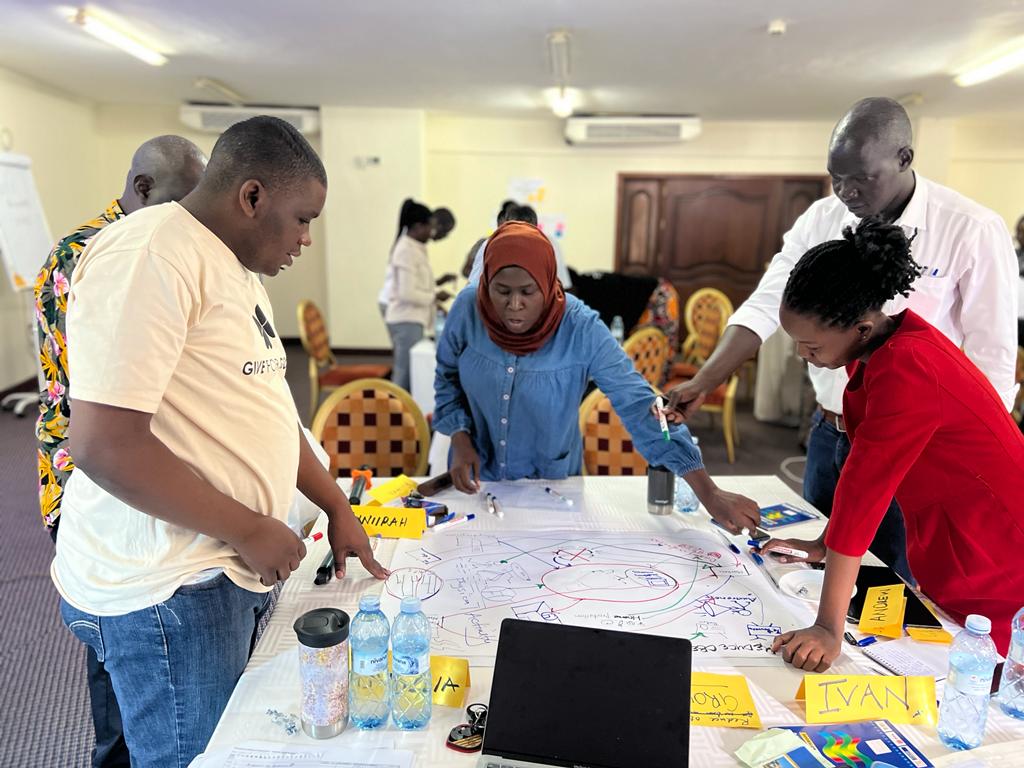
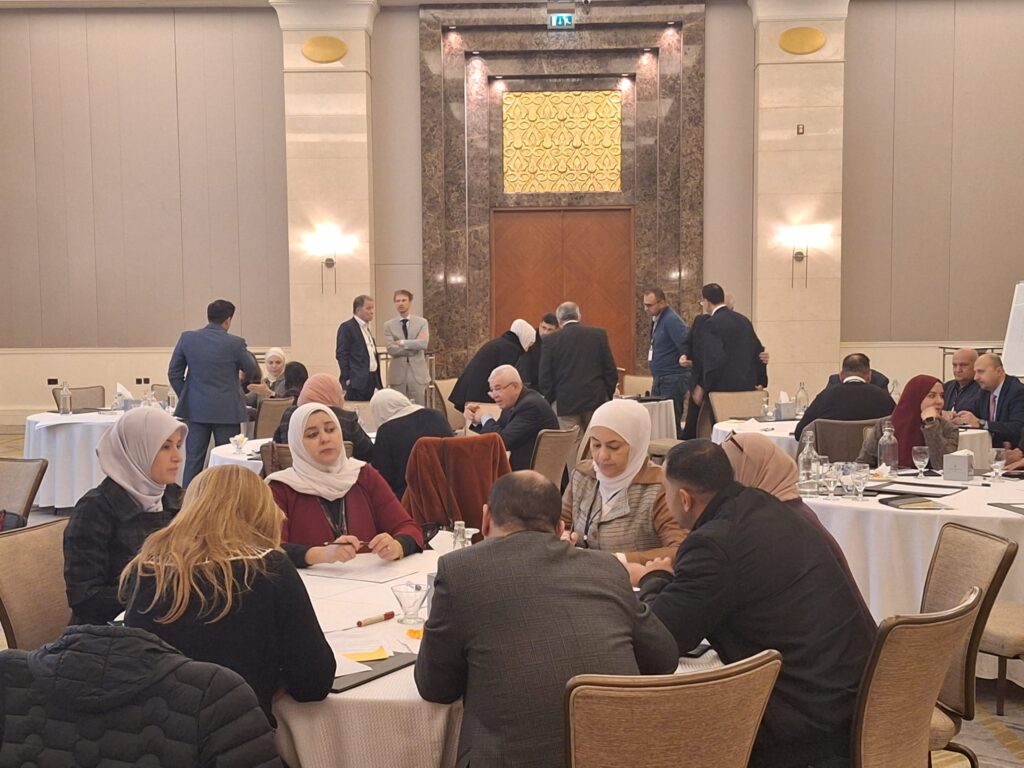
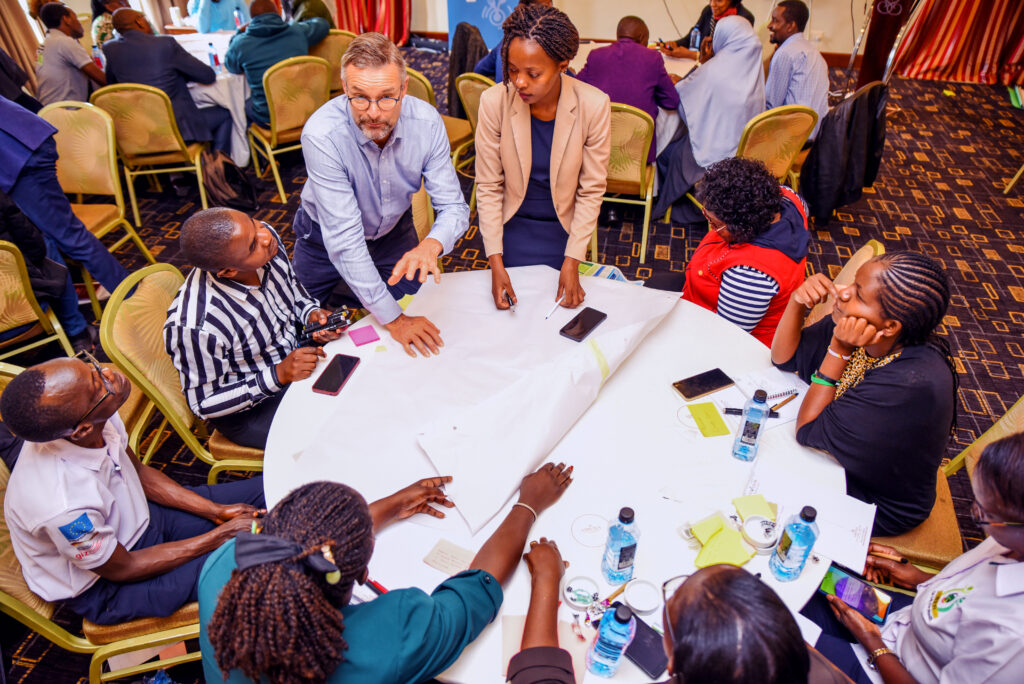
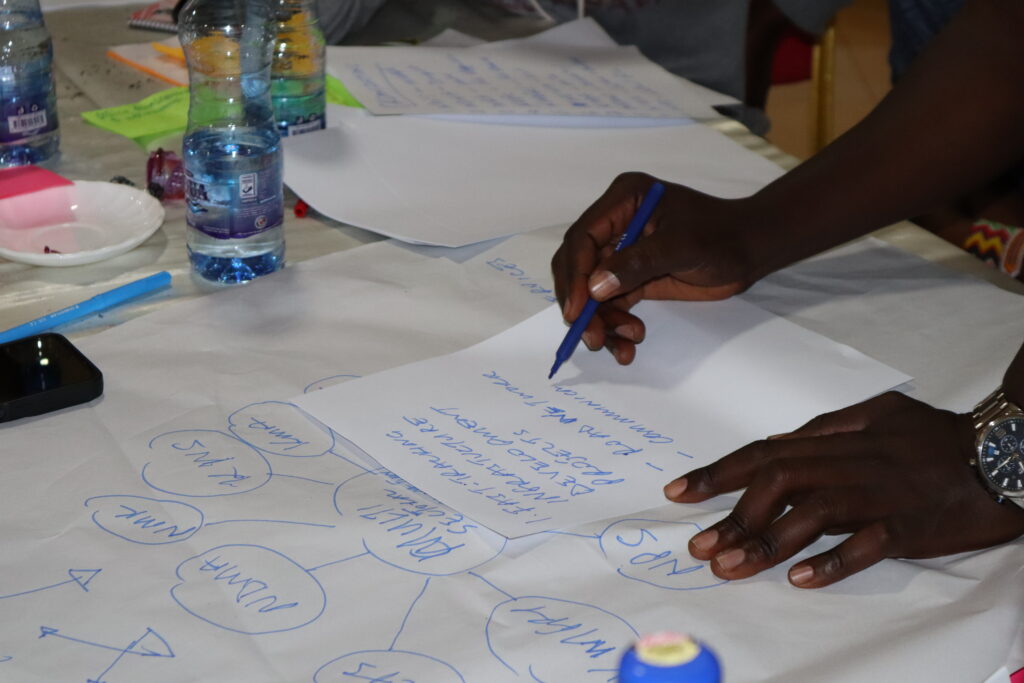


Global Collaboration: Building a Brokering Hub
On a global scale, FoSTr expanded its network of foresight and food systems practitioners, deepening collaboration across organizations like the Forum for Agricultural Research in Africa (FARA), the Global Alliance for Improved Nutrition (GAIN) in Bangladesh, and a number of renowned research institutes in the focus countries.
The work of FoSTr programme was very well-received at the 4th Global Foresight4Food Workshop in Dhaka, where more than 120 foresight practitioners from Asia, Africa, and Europe gathered to share insights on foresight methodologies and food system challenges.
Read also:
Using Foresight to Re-imagine the Future of Food Systems: Foresight4Food holds its 4th Global Meeting – by Jim Woodhill
In a highly interactive week, participants engaged in a masterclass on foresight approaches, shared their experiences and lessons, heard from thought-leaders on food systems and foresight, and identified ways of strengthening foresight practice in their own countries and regions…
A Start to the Foresight Process: Food Systems Maps
As a part of the foresight process, there is a need to have a collective understanding of the food system in different contexts. Hence, the Foresight4Food FoSTr team in collaboration with our facilitators and research partners in each focus country, created comprehensive food systems reports mapping the dynamics, trends, drivers, and activities within the food system.
These Food System Maps offer an initial snapshot of the current food system status in the focus countries and are intended to inform a more comprehensive foresight process. As the dynamics, trends, drivers, and activities within the food system continually change, these reports welcome ongoing reflection and discussion.
Knowledge Base
FoSTr also played a vital part in strengthening the Foresight4Food Resource Portal, which provides access to Foresight Studies, key data around Food System Drivers and Outcomes, a database of Foresight Initiatives, and other academic literature that helps food systems practitioners develop better Foresight Models.
The Foresight4Food Resource Portal is regularly updated with the latest research and emerging studies as well as products and resources that come out of different programme activities.
Read also:
The Complexity of Global Drivers of Food System Transformation – by Bhawana Gupta
The global food system needs to be transformed. It needs to deliver better health and improved livelihoods while protecting the environment and minimizing negative social impacts. However, there are many interconnected factors playing a role. Food Systems are complex…
Overcoming Challenges
Like any ambitious programme, FoSTr encountered its share of challenges. These included navigating political instability in some focus countries. Meanwhile, navigating the political economy of food systems—especially where entrenched power dynamics and vested interests are at play—required FoSTr to strike a delicate balance between supporting ongoing policy processes and introducing more transformative ideas for change.
The Way Forward
As the Foresight4Food FoSTr programme enters its third and final year, several key objectives will guide the remaining activities:
Brokering Foresight Processes: Continue to build connections with national stakeholders and existing initiatives, ensuring that foresight insights are integrated into policy-making and planning processes.
Capacity Building: Organize intensive face-to-face training workshops to further enhance foresight facilitation skills and broaden participation from underrepresented groups, including the private sector and youth.
Scenario Analysis and Policy Recommendations: Complete the ongoing scenario analyses and translate these into clear policy recommendations that will guide national food system transformation agendas.
Sustaining Momentum Beyond 2025: Establish sustainable communities of practice that can continue to drive foresight activities beyond the programme’s official end.
Conclusion: A Transformative Journey
In an era where global food systems are under immense pressure due to climate change, population growth, and shifting socio-economic landscapes, forward-thinking approaches are critical to ensuring food security and sustainability.
The Foresight4Food FoSTr programme has made significant headway in its mission to advance food system foresight processes in Bangladesh, Jordan, Kenya, and Uganda while building a broader global network of foresight practitioners. As we look ahead to the final year, the focus will be on translating foresight insights into action, empowering national stakeholders, and ensuring that the work of FoSTr continues to have a lasting impact on food systems worldwide.
Bonus: FoSTr Facilitators Insights
As the Foresight4Food FoSTr programme continues to foster systemic change in global food systems, the programme facilitators will be sharing their observations on the work and progress of FoSTr programme in their respective countries through insightful blogs. Watch this space and our social media channels for more updates.
In October 2022, Foresight4food hosted a CFS side event on “Foresight and Future Scenarios for Food Systems Transformation – Building Resilience and Fostering Adaptation to Protect Against Future Crises”. The event was held jointly with the International Fund for Agricultural Development (IFAD), the Forum for Agricultural Research in Africa (FARA) and the CFS High Level Panel of Experts on Food Security and Nutrition (HLPE – FSN).
The event highlighted the importance of taking longer-term perspectives on food systems transformation through the use foresight and scenario analysis. The work of the Foresight4Food Initiative was outlined and a new programme “Foresight for Food System Transformation – (FoSTr)” was launched.
Patrick Caron, International Director at Montpellier University of Excellence / CIRAD opened the event and highlighted the potential of foresight for supporting food systems transformation. He emphasised that foresight is not about trying to predict the future but rather to prepare for a range of different future scenarios and to understand the implications of these for different stakeholder interests. Patrick introduced the work of Foresight4Food, which is promoting and supporting the use of foresight and scenario approaches for food systems analysis and transformation.
The event was moderated by Jim Woodhill, Lead of the Foresight4Food Initiative. He introduced the building blocks of an approach to foresight for food system transformation which has been developed by Foresight4Food. Central to this approach is identifying key trends and critical uncertainties which may influence the future of the entire food system. He indicated how Foresight4Food has been developing and how its overall approach is being tested through work in Africa and Asia. This contributes to the Foresight4Food objectives of supporting a community of practice, a brokering foresight work and developing a deeper understanding of foresight methodology and tools.
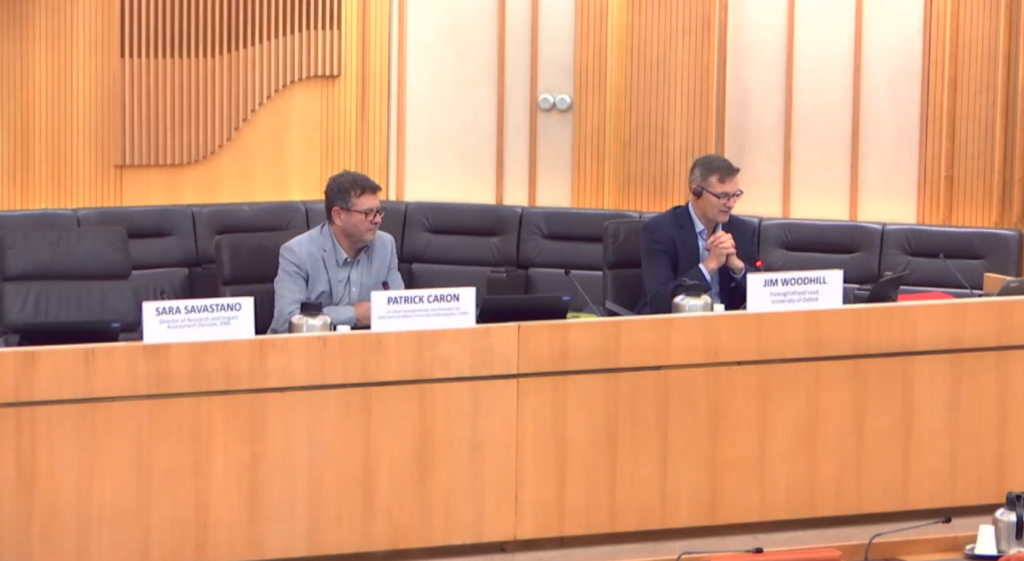
Abdurazak Ibrahim, Cluster Lead, Institutional Capacity and Future Scenarios, Forum for Agricultural Research in Africa (FARA) introduced the work of the African Foresight Academy in institutional capacity building for foresight and scenarios. He outlined the objectives of Academy and introduced current initiatives. This includes running an AgMOOC on foresight for which 300 people have enrolled and which has been produced in partnership with Foresight4Food.
Akiko Suwa-Eisenmann, a member of the HLPE-FSN, discussed the most recently presented HLPE-FSN report no. 17 on “Data collection and analysis tools for food security and nutrition” which focuses on enhancing data for effective, inclusive and evidence-informed decision making. Akiko emphasised that the current food crisis further illustrates that it is critical to have reliable and up-to-date data on food and nutrition security. Challenges to be faced include enhancing data literacy, dealing with the complexity of food systems across scales, filling critical data gaps, and synthesising and presenting data so it is useful for decision making. Akiko noted that “foresight needs to be data informed and that means not only data collection and analysis but also translating data into insights, and dissemination for making decisions, and that foresight is key in these processes of bringing data to the public debate”. She also highlighted the value of linking the work of the HLPE and that of Foresight4Food.
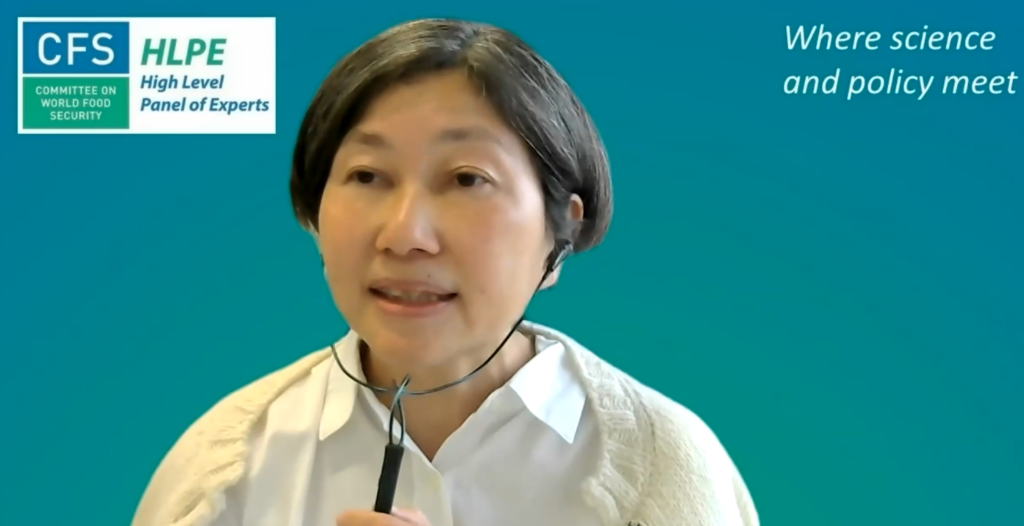
John Ingram, Lead of the Food Group at the Environmental Change Institute, and Associate Professor and Senior Research Fellow at Somerville College, University of Oxford, introduced and launched the new Foresight for Food System Transformation (FoSTr) Programme. This will be a three-year initiative helping to take forward the work of Foresight4Food with engagement in five focus countries across Africa, Asia and the Middle East. FoSTr is funded by the Government of the Netherlands, as a grant through the International Fund for Agricultural Development (IFAD). He talked about the collaborative nature of this work at both national and global levels and its intention to support a growing community of practice across foresight providers and users.
Read Also: Successful launch of the FoSTr Programme in Jordan during fruitful roundtable on future food systems
Sara Savastano, the Director of IFAD’s Research and Impact Assessment Division, discussed the need to understand how food systems work in the selected countries where FoSTr will operate. She noted the importance of foresight as a key contributor for designing effective investment projects which tackle the longer-term challenges of building resilience into food systems.
Ravi Khetarpal, Executive Secretary of Asia Pacific Association of Agricultural Research Institutions (APAARI), and Chair of the Global Forum for Agricultural Research (GFAR) underlined the continued importance of the agri-food sector for security and development across the Asia Pacific. He emphasised the critical need for multi-stakeholder platforms at national and local levels to help drive the needed innovation for transforming food systems. He saw foresight and the Foresight4Food initiative as a valuable contribution to such processes and welcomed its work in the region. To achieve sustainable and resilience food systems he called for more evidence-based policy making, which relies on good data and the type of integrated qualitative and quantitative analysis which can be offered by foresight.
Sara Mbago-Bhunu, the Director of IFAD’s East and Southern Africa Division, highlighted the current crises across the region being driven by increasing energy and food prices, along with climate impacts. She welcomed the FoSTr initiative and noted the critical need to transform food systems for long-term resilience while also tackling the humanitarian relief demands in the short-term. She emphasised the historical link between high food prices and social unrest and reminded the audience of the huge shortfall in investment funds for the agri-food sector. She hoped that “the FoSTr program as you have described here can do the modelling and forecasting to build up capacities in this space for informed policy making to invest in sustainable and circular management [of food systems]”.
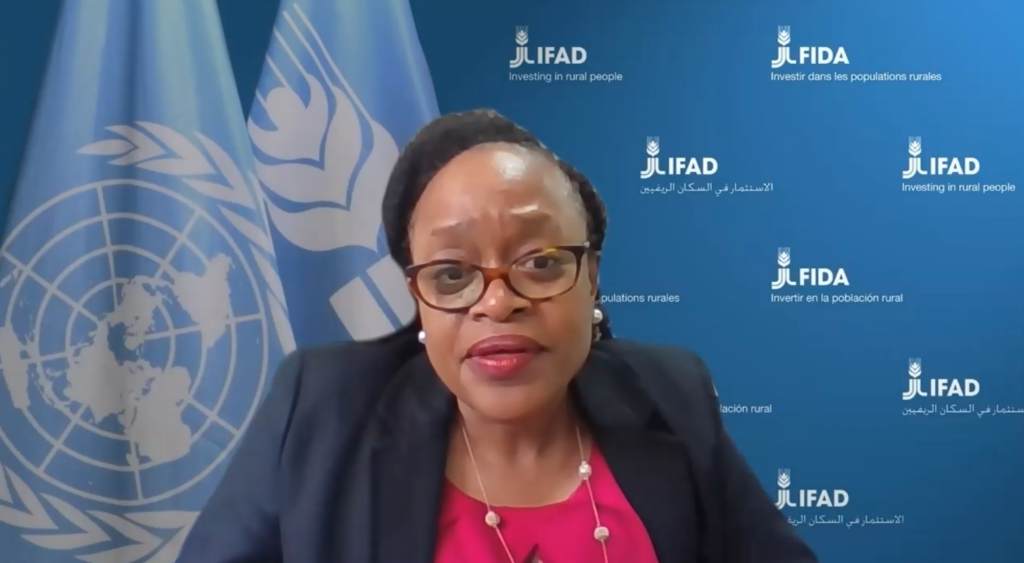
Winnie Yegon, a Horticulture Fellow with the African Food Fellowship, and food systems expert with the Food and Agriculture Organisation (FAO) explained how training in food system foresight provided by the Followship Programme, has enabled new perspectives on how to bring about change in food systems. In particular, she noted the value of an integrating perspectives that brings stakeholders together to make sense of available data.
Herman Brouwer, Senior Advisor for Multi-Stakeholder Collaboration at the Centre for Development Innovation (CDI), Wageningen University and Research, highlighted two key implications from the discussion, on one hand the need for reliable data and on the other the need for processes which enable collective sense making. He noted that helping to bring enhanced literacy on data and foresight processes is a valuable contribution which can be made by Foresight4Food and the FoSTr Programme. In particular, he emphasised the need for collaboration between different stakeholder across the food system to enable change, and that foresight can make a valuable contribution to such collaborative processes by creating shared understanding of future risks and opportunities.
Key Messages
- The current crisis in energy and food prices underscores the need for food systems transformation with a central focus on resilience.
- Transforming food systems requires long-term perspectives and futures thinking which can be supported through foresight and scenario analysis.
- Foresight is most valuable when it can integrate qualitative and quantitative methods and engage stakeholders from across the food system.
- Foresight4Food offers a network and platform for sharing experience and methodology on foresight for food systems change, and for supporting capacity development.
- Foresight needs good data on food security and nutrition, however, there remain large gaps in data availability and limited literacy on how to collect and analyse data.
- The Foresight for Food System Transformation (FoSTr) Programme will provide three years of support for the work of Foresight4Food and enable in-depth work in five focus countries.
- Enhancing food systems and foresight literacy across key players in food systems is increasingly recognised as an important element in being able to transform food systems and take forward national food systems transformation pathways.